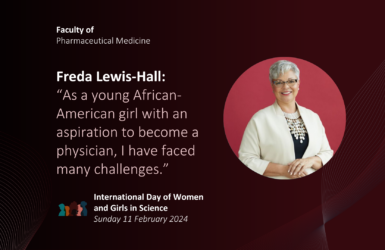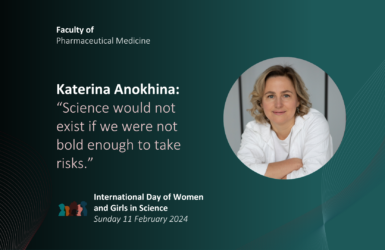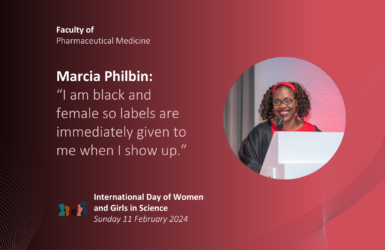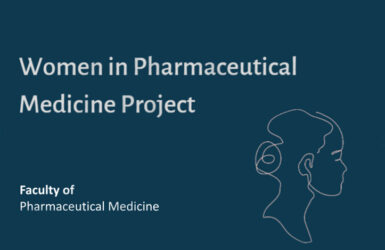Q&A with Emma Iovoli
Posted on: Friday 9 February 2024
About Emma
Emma Iovoli is a medical doctor and clinical academic with over a decade of experience within the pharmaceutical industry. She has worked as a doctor in the NHS in the UK, completed a Medical Research Council funded PhD in respiratory disease and has senior leadership experience in global and regional medical affairs, including most recently as the Medical Head of Global Health at GSK.

What inspired or motivated you to pursue a career in science?
Growing up there were always medical journals lying around the house. My father was a professor of elderly medicine and my mother a nurse practitioner, both very dedicated to their work and their profession. I liked the “neatness” of science – that difficult problems could be solved, medical conditions diagnosed, and that new innovations could be created to make the world better a better place. But what motivated me the most was the desire to improve public health.
What message would you like to convey to women and girls aspiring to make their mark in the field of science?
It is probably a cliché but follow your own passions and interests. Do not worry too much about what other people say you “should” do. Science is all the richer for the diversity of the people that contribute to it. We do not all need to think the same. In fact, it’s much better if we do not. It is most important to listen, to discern what information you want to take on board, and to explore who you really are and what you can uniquely contribute to whichever scientific field you end up in. Whatever you do, do it with love!
How have you navigated and overcome gender-related challenges in your journey?
I think I always had a sense that I needed to hide my complexity, my emotions, and my vulnerability. To be successful in a career in science seemed to mean being more like people around me. Logic and reason are very dominant paradigms in science, for good reason. But as a woman I can also bring my strong sense of intuition, my own core values, my colourful passions (and, yes, emotion when its channelled in helpful ways) and my slightly chaotic approach to problem solving – an approach that tends to pick up on lateral ideas that can go missing when we are too “logical” about it.
Letting go of other people’s expectations and just being me is an ongoing challenge – believing that I have something genuinely special to contribute. But equally important is listening to feedback, learning how I am received by others, and finding better ways to communicate my ideas and intentions. Over the years I have been learning how to be both humble and confident. A difficult balance.
What changes or advancements do you hope to see for women in science over the next decade, and how can we collectively work towards achieving these goals?
I hope there will be an increasing open-mindedness to different ways of thinking, to using systems change approaches for example. We still need cause and effect linear models and reductionist thinking, but in addition we can take in the whole system and use this “big picture” to be clearer on where we need to intervene, possibly in very simple but meaningful ways rather than with advanced technologies. The biggest paradigm shift we are seeing in medicine is away from treatment of disease toward health promotion – female community leaders can lead the charge!
On this special day, we want to celebrate your achievements. Can you share a project or accomplishment that you are particularly proud of during your career in science?
I suppose I was never going to be truly satisfied with my career in science until I found a topic that I could be 100% passionate about, something I could uniquely champion and embody, and something that I was sure could improve public health. It took me a couple of decades, but I believe I have finally found that in the work I am now doing in climate, health and equity, and the role of pharmaceutical physicians. It’s the most meaningful and exciting work I have ever done.






